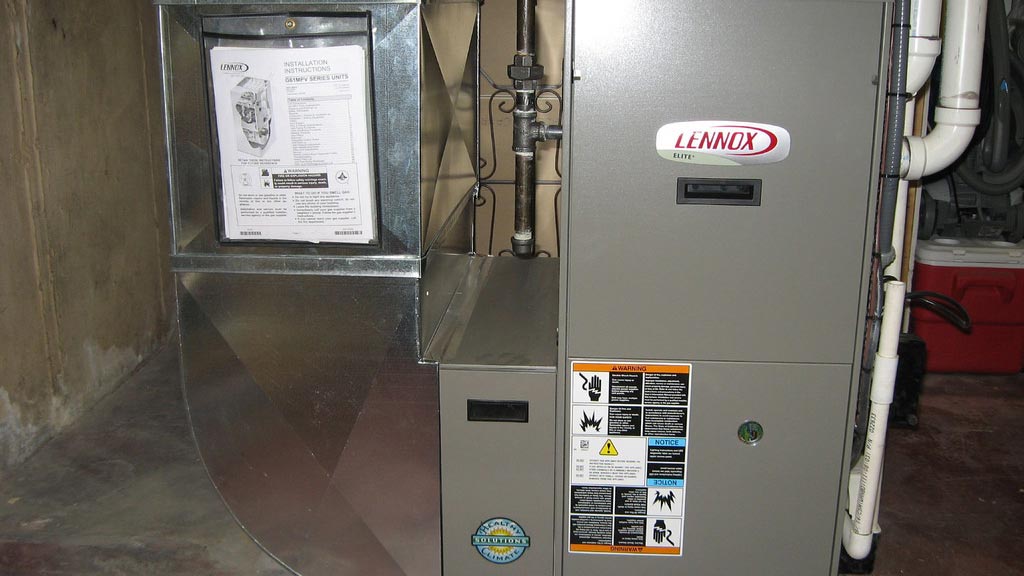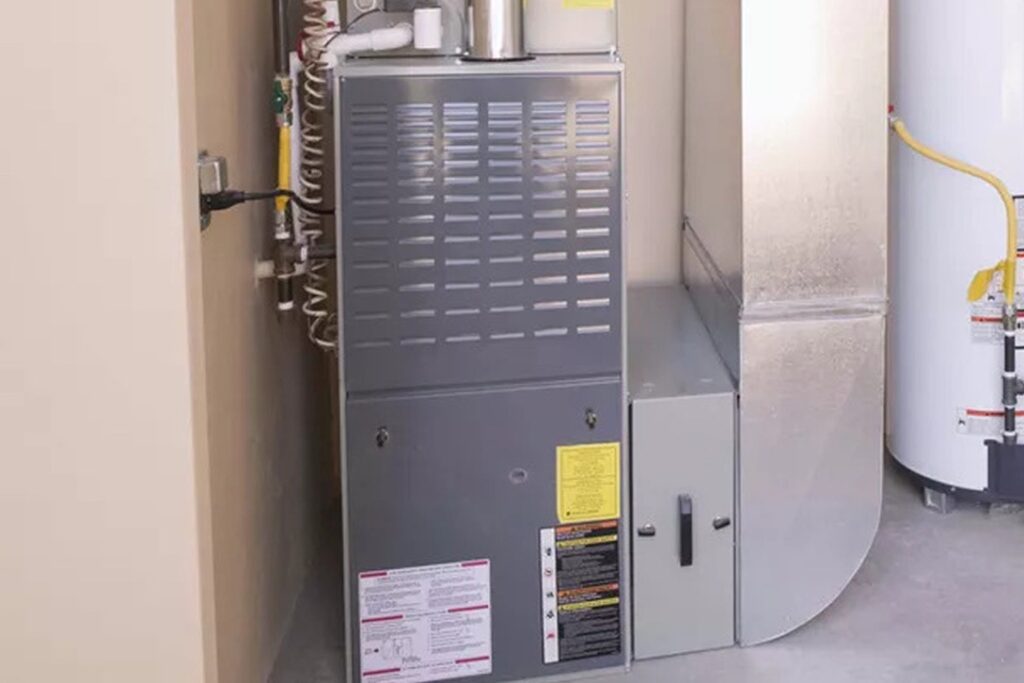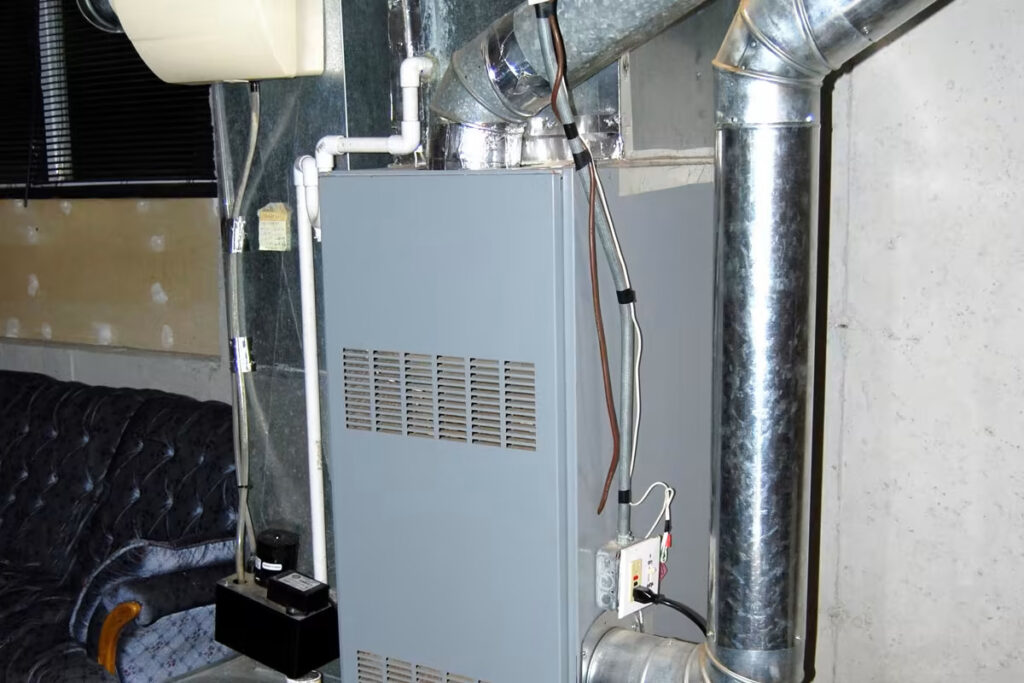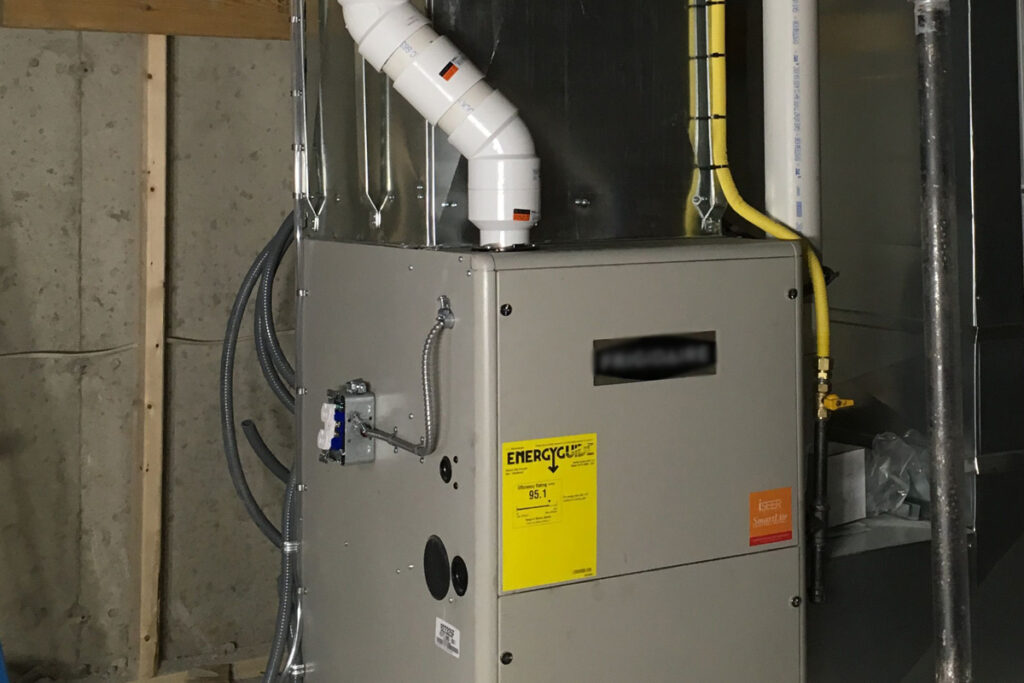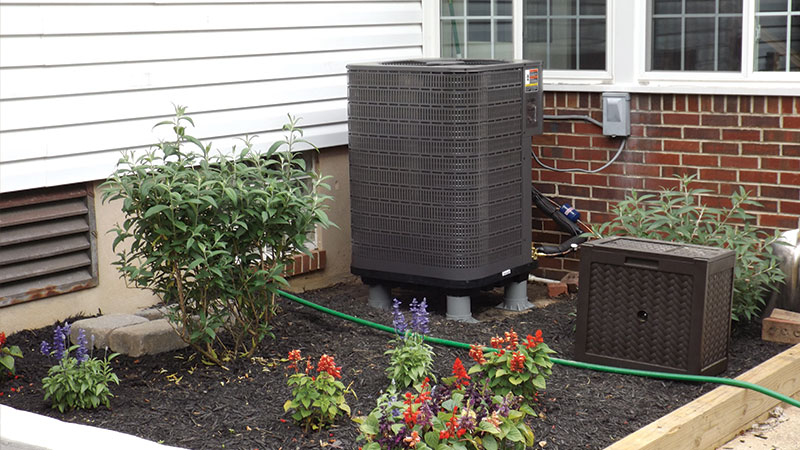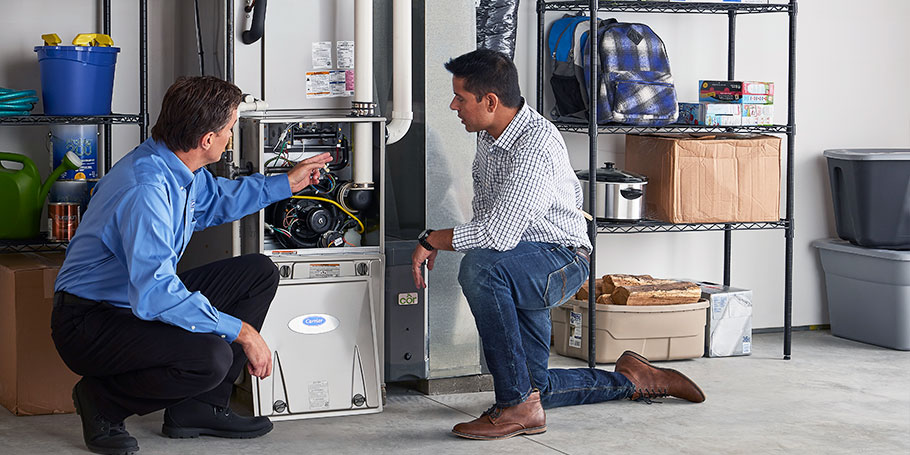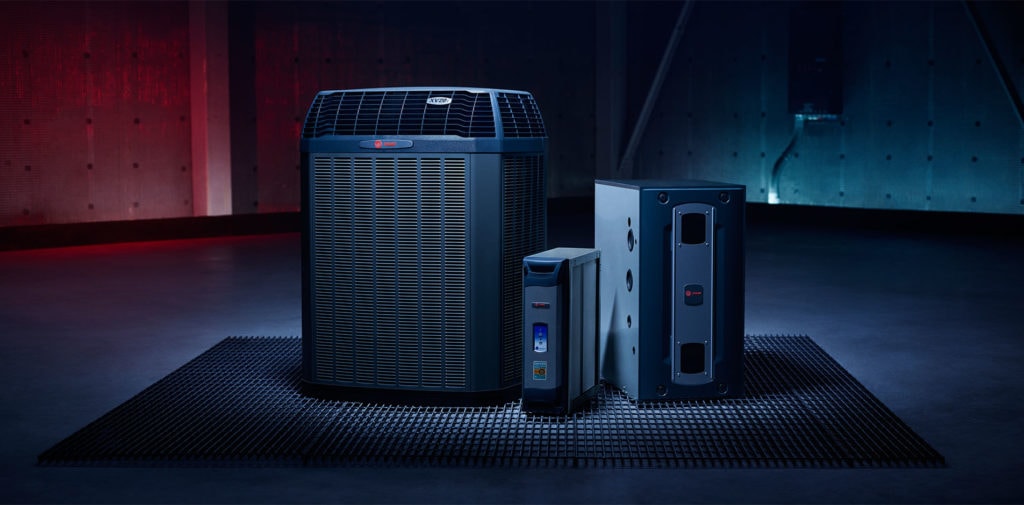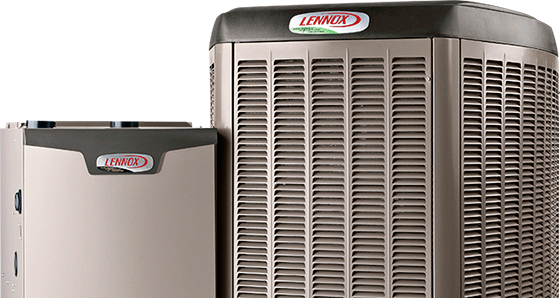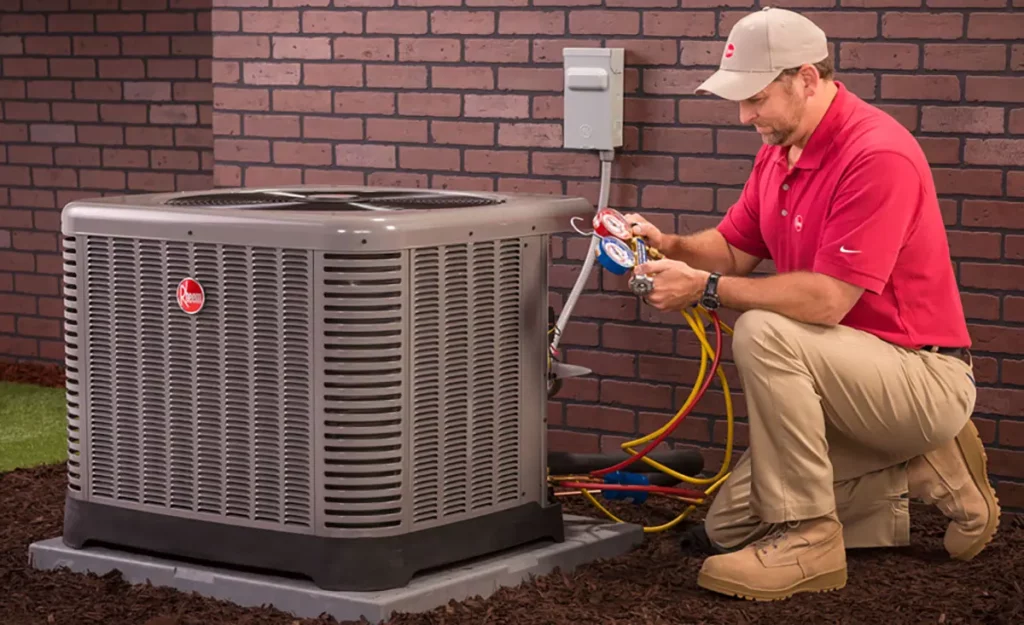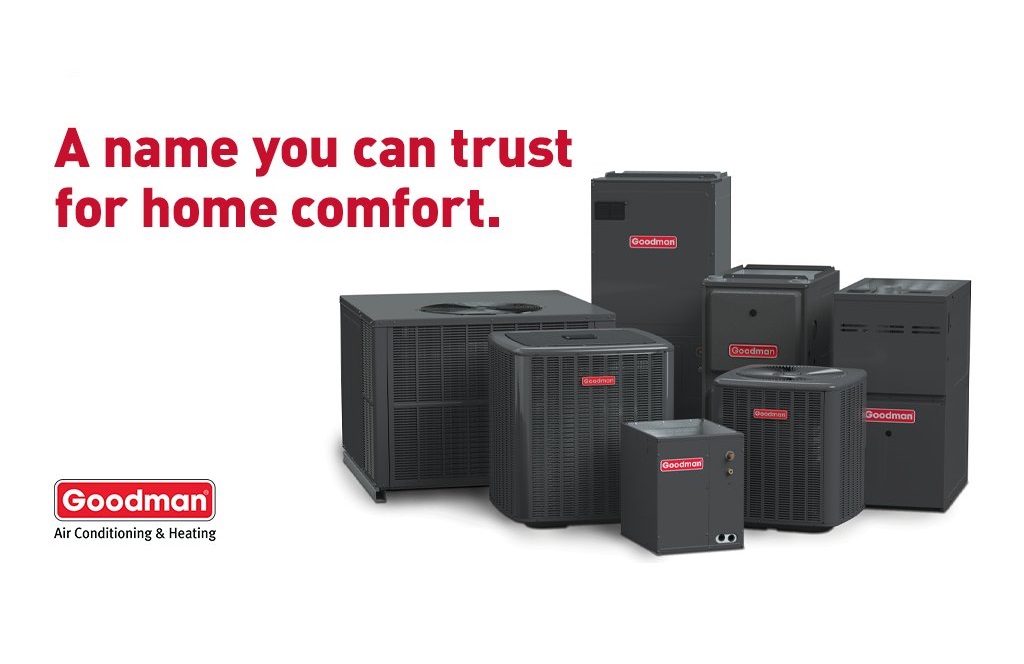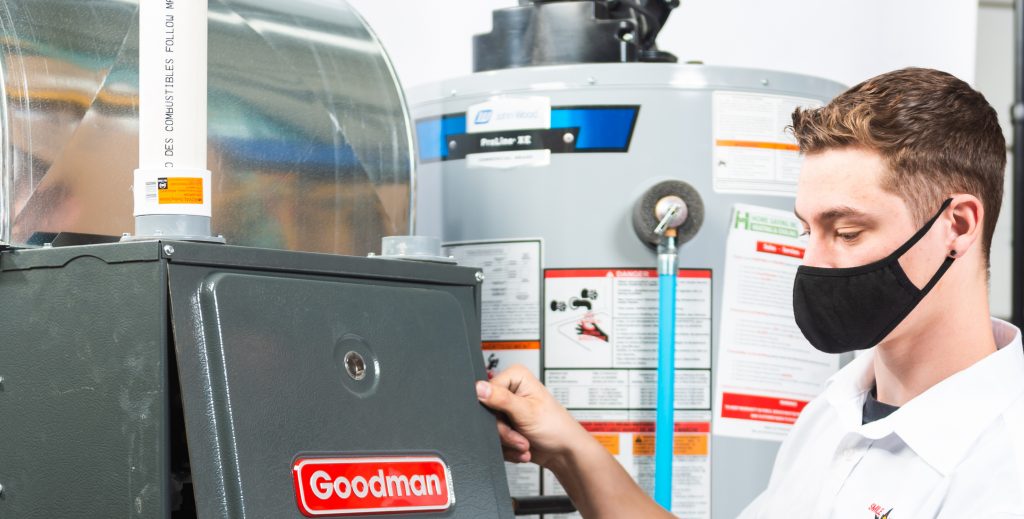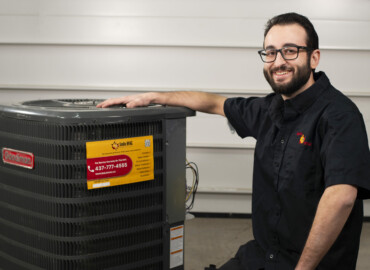How Much Does New Furnace Cost In Canada?
Are you looking for a new furnace for your home? Whether you’re replacing an old and inefficient system or installing one in a new home, it’s important to understand the costs and benefits associated with this investment of installing a new furnace at your home.
A furnace is a critical component of your home’s heating system, providing warmth and comfort during the colder months. However, selecting the right type, size, and brand of furnace can be a daunting task, with many factors to consider, such as energy efficiency, reliability, and cost-effectiveness.
In this article, we will explore the cost factors, different types of furnaces, popular brands, and models, and the steps involved in finding the ideal furnace for your home. By the end of this topic, you’ll have the knowledge and tools necessary to make an informed decision about installing a new furnace in your home.
Cost To Install a New Furnace?
The cost of installing a new furnace can vary depending on several factors, such as the type and size of the furnace, the complexity of the installation, and your location. On average, the cost of installing a new furnace can range from $2,500 to $7,500.
Breakdown of factors involved in the cost of installing a new furnace:
- Cost of Furnace Unit – The cost of the furnace itself can vary based on factors such as its efficiency, brand, and features. A basic furnace can cost around $1,500 to $3,000, while a high-efficiency or premium model can range from $3,000 to $7,500.
- Cost of Labor – Hiring a professional HVAC contractor for the installation is essential. Labor costs can vary depending on the complexity of the installation, the region you’re in, and the contractor’s rates. On average, labor costs can be around $1,000 to $3,000.
- Cost of Ductwork Modifications – Depending on the kind of changes or modifications required to your existing ductwork to accommodate the new furnace, additional costs may be incurred. These can range from $500 to $2,000.
- Cost of Permit and Inspection – Some areas require permits and inspections for furnace installations. Permit fees can range from $100 to $500, depending on your location. Inspection fees, if applicable, can also add to the overall cost.
- Cost of additional components or upgrades – You may want to consider additional components or upgrades such as a programmable thermostat, air purifier, or zone control systems. These can add anywhere from $100 to $1,500 to the total cost, depending on the specific upgrades you choose.
Price of Different Types of Furnaces
The price of different types of furnaces can vary based on several factors such as brand, size, and energy efficiency rating. Here are some general price ranges for different types of furnaces-
1. Gas Furnaces Cost In Canada
Gas furnaces are a popular choice for heating homes. The price of a gas furnace can vary depending on factors such as the brand, model, efficiency rating, and the size or heating capacity required for your home.
Gas furnaces are the most common type of furnace and typically cost between $2,500 to $6,000 for a basic model, installation included. Higher-end gas furnaces with greater efficiency ratings and more features can cost up to $12,000 or more.
2. Electric Furnaces Cost In Canada
Electric furnaces are a less common type of heating system that uses electricity to heat the air in your home.
The cost of an electric furnace can vary based on factors such as the brand, model, and size of the furnace.
Electric furnaces are generally less expensive than gas furnaces, costing anywhere from $1,000 to $3,000 for a basic model, installation excluded. However, they can be less efficient and may result in higher energy bills. Whereas Higher-end Electric furnaces with greater efficiency ratings and more features can cost up to $12,000 or more.
It’s also worth noting that electric furnaces may result in higher energy bills than gas furnaces, as electricity is typically more expensive than natural gas. However, electric furnaces do not require a fuel source, so they may be more practical in areas where natural gas is not readily available.
3. Oil Furnaces Cost In Canada
Oil furnaces are less common compared to gas and electric furnaces, but they are still used in certain regions. The cost of an oil furnace can vary based on factors such as the brand, model, and heating capacity.
The cost of a basic oil furnace typically ranges from $2,500 to $4,500, excluding installation. Whereas the price for High-efficiency oil furnaces, known for their energy efficiency and advanced features, is priced between $7,000 and $10,000 or more, excluding installation.
It’s also worth considering that oil furnaces require a steady supply of oil, and the cost of oil can vary based on market prices and regional factors. Additionally, oil furnaces may require more maintenance compared to gas or electric furnaces.
4. Propane Furnaces Cost In Canada
Propane furnaces are similar to gas furnaces, but they use propane as their fuel source instead of natural gas.
The cost of a basic propane furnace typically ranges from $1,500 to $3,000, excluding installation. These furnaces usually have a lower efficiency rating and fewer features.
Whereas High-efficiency propane furnaces, known for their energy efficiency and advanced features, are priced between $5,000 and $10,000 or more, excluding installation.
It should be also considered that propane prices can vary based on market prices and regional factors, and propane furnaces may require more maintenance compared to gas or electric furnaces.
5. Dual Fuel System Cost In Canada
A dual-fuel system is a type of heating system that uses two different fuel sources to heat your home. Typically, this involves using a heat pump that runs on electricity as the primary heating source, and a gas or propane furnace as a secondary heating source to provide backup heating when the temperatures drop below a certain threshold.
They tend to be more expensive where the basic dual-fuel system costs between $4,000 to $8,000, and the High-efficiency dual-fuel systems are priced between $12,000 and $20,000 or more, excluding installation.
Furnace Pricing By Brand Of The Furnace
The cost of a furnace can vary widely depending on the brand and model. Here are some of the most popular furnace brands and their approximate price ranges.
1. Carrier Furnace Pricing
The cost of Carrier furnaces can vary depending on the specific model, heating capacity, and efficiency rating. Generally speaking, Carrier furnaces are considered to be high-end units and are priced accordingly. The cost of a Carrier furnace typically ranges from $2,500 to $6,000 or more.
The price range for Carrier furnaces
- Carrier Comfort Series: $2,500 to $4,500
- Carrier Performance Series: $3,000 to $5,500
- Carrier Infinity Series: $4,000 to $6,000 or more
2. Trane Furnace Pricing
Trane is a leading brand in the HVAC industry, known for its high-quality, energy-efficient heating and cooling systems. Trane offers a range of gas and electric furnaces designed to provide reliable and efficient heating performance. The cost of a Trane furnace usually ranges from $2,500 to $5,500 or more.
The price range for Trane furnaces
- Trane S9V2: $3,000 to $5,500
- Trane XC95m: $4,500 to $6,500
- Trane XV95: $3,500 to $5,000 or more
3. Lennox Furnace Pricing
Lennox is a well-respected brand that offers a range of high-efficiency gas and electric furnaces. The cost of a Lennox furnace typically ranges from $2,500 to $5,500 or more.
The price range for Lennox furnaces
- Lennox Merit Series: $2,500 to $4,000
- Lennox Elite Series: $3,000 to $5,500
- Lennox Signature Series: $4,000 to $6,500 or more
4. Rheem Furnace Pricing
Rheem is a well-known brand in the HVAC industry that offers a variety of high-quality, energy-efficient gas and electric furnaces. The cost of a Rheem furnace usually ranges from $1,500 to $3,500 or more.
The price range for Rheem Furnaces
- Rheem Classic Series: $2,000 to $4,000
- Rheem Classic Plus Series: $2,500 to $4,500
- Rheem Prestige Series: $3,500 to $5,500 or more
5. Goodman Furnace Pricing
Goodman is a popular brand in the HVAC industry that offers a range of high-quality, affordable gas and electric furnaces. Generally speaking, Goodman furnaces are considered to be mid-range units and are priced accordingly. The cost of a Goodman furnace typically ranges from $1,500 to $3,500 or more.
The price range for Goodman Furnaces
- Goodman GMSS96 Series: $1,500 to $2,500
- Goodman GMVC96 Series: $2,500 to $3,500
- Goodman GMVM97 Series: $3,500 to $4,500 or more
Furnace Pricing By Models of a Furnace
The price of different models of a furnace can vary depending on several factors, including the brand, heating capacity, efficiency rating, and features.
Here is a rough idea of the price range for some common furnace models –
- Carrier Infinity 98 Gas Furnace: $4,500 to $7,500
- Trane XV95 Gas Furnace: $3,500 to $6,000
- Lennox Signature Collection SLP98V Gas Furnace: $5,000 to $8,000
- Rheem Classic Plus Series R96V Gas Furnace: $2,500 to $4,500
- Goodman GMVC96 Gas Furnace: $2,500 to $3,500
To find the best furnace model for your home, it’s important to consider factors such as your climate, the size of your home, and your budget. A qualified HVAC contractor can help you determine the appropriate size and type of furnace for your home and provide recommendations on the best models for your needs.
When selecting a furnace model, it’s important to choose a reputable brand that offers a warranty and has a good track record of quality and reliability. Look for models with high-efficiency ratings and features such as programmable thermostats, multi-stage heating, and variable-speed blowers, which can help you save money on energy costs over time.
Furnace Pricing By Size of The Furnace (BTU)
The price of a furnace can vary depending on its size, measured in British Thermal Units (BTUs). The larger the size of the furnace, the more it will typically cost. Here is an idea for different sizes of furnaces –
- 40,000 BTU furnace: $1,500 to $2,500
- 60,000 BTU furnace: $2,000 to $3,500
- 80,000 BTU furnace: $2,500 to $4,500
- 100,000 BTU furnace: $3,000 to $5,500
- 120,000 BTU furnace: $3,500 to $6,500
To find the best furnace size for your home, it’s important to consider several factors. These include the size of your home, your climate, and your heating needs. A furnace that is too small for your home will struggle to keep your home warm, while a furnace that is too large will waste energy and may result in uneven heating.
To determine the correct furnace size for your home, a professional HVAC contractor will perform a load calculation, which takes into account the size of your home, the climate in your area, and other factors such as insulation, windows, and doors. They will then recommend a furnace size that is appropriate for your home.
How Much Does an HVAC Company Charge To Install a New Furnace?
The Labour cost to install a new furnace can range from $1000 to $3000 but a lot of HVAC companies will not provide you with installation fees separately but will include that in the price of the product.
The price of labor to install can vary depending on several factors, including the type of furnace, the size of the furnace, the complexity of the installation, and labor rates in your area.
Here is an idea of the price range for furnace installation costs:
- Gas Furnace Installation: $2,500 to $7,500
- Electric Furnace Installation: $2,000 to $5,000
- Oil Furnace Installation: $4,000 to $7,000
- Propane Furnace Installation: $3,000 to $6,000
- Dual Fuel System Installation: $5,000 to $10,000
It’s important to note that these are just rough estimates and installation costs can vary depending on your specific needs and circumstances.
Ultimately, the best way to find the right HVAC company for your furnace installation needs is to do your research, ask questions, and choose a reputable contractor with a track record of quality workmanship and customer satisfaction.
Tips for Picking the Right Furnace for Your Home
Finding the right furnace to install in your home involves several steps.
Here’s a step-by-step guide
- Calculate your home’s size – The first step in finding the right furnace is to determine the size of your home. This will help you determine the amount of heating power (measured in BTUs) you’ll need. To calculate your home’s size, measure the square footage of each room and add them together.
- Consider the number of people living in your home – The number of people living in your home can also impact the heating requirements. A larger family will typically require more heating power than a smaller family.
- Calculate how much BTU you need – Once you have the square footage of your home and the number of people living in it, you can use a BTU calculator to determine how much heating power you’ll need. This will help you select the appropriate size furnace for your home.
- Find the best brand and model – When choosing a furnace brand and model, consider factors such as energy efficiency, reliability, warranty, and availability of parts. Look for furnaces with high Annual Fuel Utilization Efficiency (AFUE) ratings, which indicate how efficiently the furnace converts fuel into heat. Also, consider features such as multi-stage heating, variable speed blowers, and programmable thermostats.
- Call HVAC companies and compare prices – Once you have an idea of the type of furnace you want, call several HVAC companies to get quotes. Compare the prices and services offered by each company before making a decision.
- Go for the best price in the market – After evaluating the prices and services offered by different HVAC companies, choose the one that offers the best value for your money. Make sure the company is licensed, insured, and experienced in furnace installation.
By following these steps, you can find the right furnace to install in your home that will provide efficient and effective heating for years to come.
Read More to Find Our How to install a new furnace.
10 Factors That Affect The Price of New Furnace Installation
Several factors can affect the price of a new furnace installation. Here is a list of factors and their explanations.
- Type of furnace – The type of furnace you choose, such as gas, electric, oil, propane, or a dual fuel system, can impact the installation cost. Different types of furnaces have different installation requirements and associated costs.
- Furnace size – The size or heating capacity of the furnace, measured in BTUs, can affect the installation cost. Larger furnaces may require additional materials and labor for installation.
- Efficiency rating – Furnaces with higher efficiency ratings tend to cost more upfront but can save you money on energy bills in the long run. Higher-efficiency furnaces may have additional installation requirements, such as venting or ductwork modifications, which can impact the installation cost.
- Ductwork modifications – If your existing ductwork needs modifications or repairs to accommodate the new furnace, it can add to the installation cost. This may include resizing, sealing, or replacing ducts to ensure proper airflow.
- Venting requirements – Depending on the type of furnace, venting requirements may vary. For example, gas furnaces require proper venting to expel combustion gases. If venting modifications or new venting systems are needed, it can increase the installation cost.
- Electrical requirements – Electric furnaces may require electrical upgrades or modifications to meet the electrical demands of the new unit. This can involve rewiring or upgrading the electrical system, which can impact the installation cost.
- Additional components – The installation cost may also include the installation of additional components, such as thermostats, humidifiers, air purifiers, or zoning systems. These add-ons can enhance comfort but may increase the overall installation cost.
- Local labor rates – Labor rates can vary depending on your location and the availability of qualified HVAC contractors. Higher labor rates can impact the overall installation cost.
- Permits and inspections – Depending on your local regulations, permits, and inspections may be required for furnace installations. The cost of permits and any necessary inspections should be considered in the overall installation cost.
- Warranty and service agreements – Some HVAC companies offer warranties and service agreements that may add to the installation cost but provide added benefits such as extended warranty coverage or regular maintenance services.
It’s important to consult with a qualified HVAC contractor to assess your specific needs and provide an accurate estimate based on these factors. They can evaluate your home, recommend the appropriate furnace size and type, and provide a detailed breakdown of the installation cost.
How you can save money with a new furnace?
Installing a new furnace can provide several benefits and opportunities for saving money. By choosing an energy-efficient model, you can reduce your energy consumption and lower your heating costs.
Additionally, a new furnace can help you avoid frequent repairs and benefit from warranty coverage, reducing long-term maintenance expenses. Advanced features like programmable thermostats and zoning capabilities allow for better control over your heating system, optimizing energy usage and potential savings.
Taking advantage of tax credits and rebates available for energy-efficient furnaces can further reduce the upfront cost. Proper sizing and regular maintenance ensure efficient operation and extend the lifespan of the furnace, preventing premature replacements.
Overall, consulting with a professional HVAC contractor and selecting the right furnace for your specific needs and budget can lead to significant savings and increased comfort in your home.
Conclusion
In conclusion, understanding the costs and benefits of installing a new furnace is essential for homeowners looking to improve their home’s heating system. Several factors impact the overall cost of installation, including the type and size of the furnace, the brand and model, and the labor and installation fees charged by HVAC contractors.
It’s important to select the right furnace size for your home, as an undersized or oversized furnace can result in reduced efficiency, increased energy consumption, and higher utility bills. Energy-efficient furnaces can provide substantial cost savings over the long term, and tax credits and rebates can further offset the upfront costs. Choosing a reliable and reputable HVAC contractor to handle the installation can ensure a safe and proper installation and avoid costly repairs down the line.
Overall, a new furnace can provide increased comfort, improved energy efficiency, and cost savings for homeowners looking to upgrade their home’s heating system.
FAQ
How much does it cost to install a furnace?
The cost of installing a furnace ranges from $1,500 to $5,000, depending on the type of furnace and the complexity of the installation.
How much does a new furnace cost?
The cost of a new furnace ranges from $2,500 to $7,500, depending on the type of furnace, the size of your home, and the complexity of the installation.
How much does it cost to replace a furnace?
The cost of replacing a furnace ranges from $2,500 to $7,500, depending on the type of furnace, the size of your home, and the complexity of the installation.


